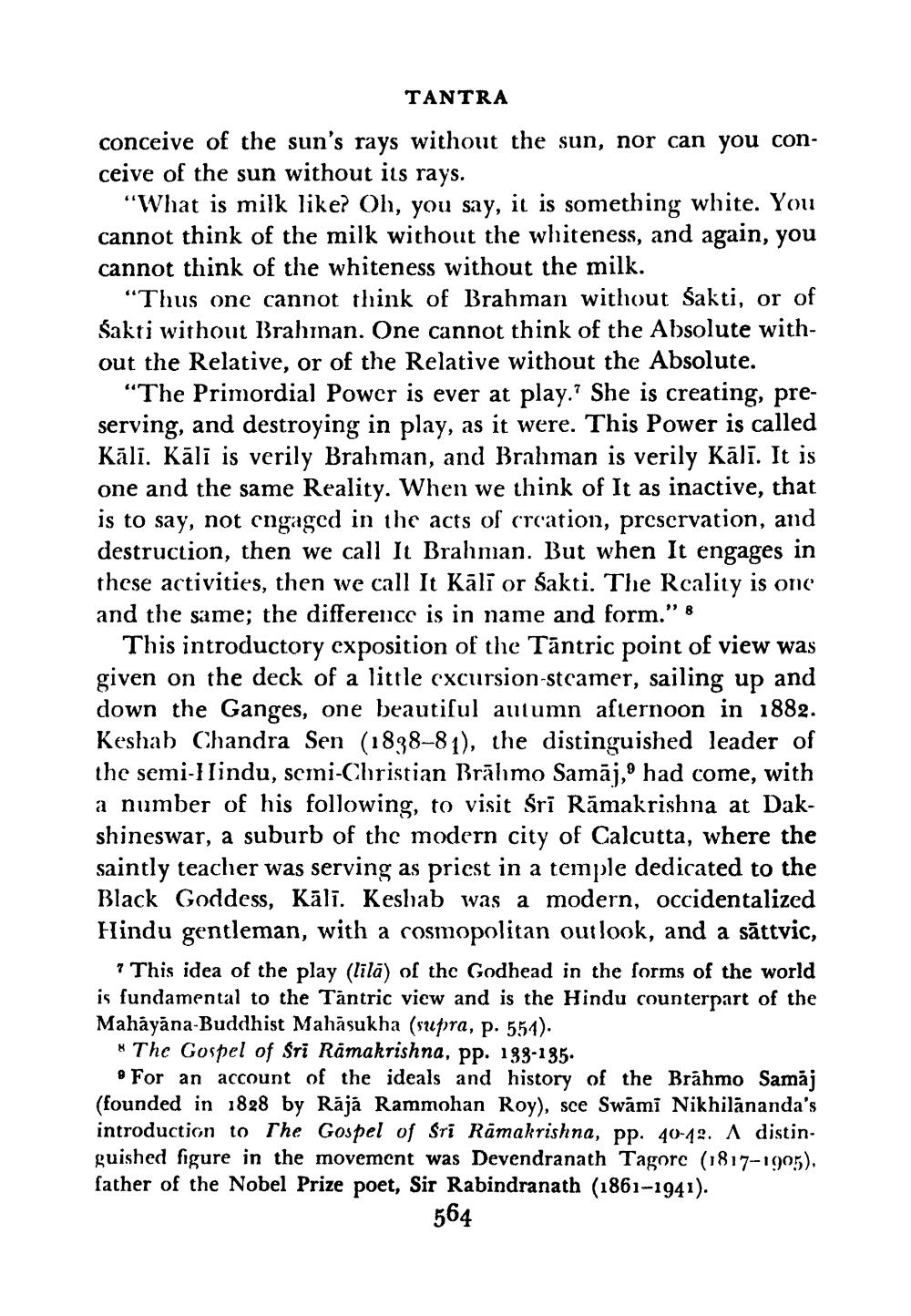________________
TANTRA
conceive of the sun's rays without the sun, nor can you conceive of the sun without its rays.
"What is milk like? Oh, you say, it is something white. You cannot think of the milk without the whiteness, and again, you cannot think of the whiteness without the milk.
"Thus one cannot think of Brahman without Śakti, or of Sakti without Brahman. One cannot think of the Absolute without the Relative, or of the Relative without the Absolute.
"The Primordial Power is ever at play. She is creating, preserving, and destroying in play, as it were. This Power is called Kāli. Kāli is verily Brahman, and Brahman is verily Kālī. It is one and the same Reality. When we think of It as inactive, that is to say, not engaged in the acts of crcation, preservation, and destruction, then we call It Brahman. But when It engages in these activities, then we call It Kāli or Sakti. The Rcality is one and the same; the difference is in name and form." 8
This introductory exposition of the Tāntric point of view was given on the deck of a little excursion-stcamer, sailing up and down the Ganges, one beautiful autumn afternoon in 1882. Keshab Chandra Sen (1838-81), the distinguished leader of the semi-I lindu, semi-Christian Brāhmo Samāj, had come, with a number of his following, to visit Śrī Rāmakrishna at Dakshineswar, a suburb of the modern city of Calcutta, where the saintly teacher was serving as priest in a temple dedicated to the Black Goddess, Kāli. Keshab was a modern, occidentalized Hindu gentleman, with a cosmopolitan outlook, and a sāttvic,
7 This idea of the play (lila) of the Godhead in the forms of the world is fundamental to the Tántric view and is the Hindu counterpart of the Mahayana-Buddhist Mahāsukha (supra, p. 554).
* The Gospel of Sri Ramakrishna, pp. 183-185.
. For an account of the ideals and history of the Brāhmo Samaj (founded in 1828 by Räjá Rammohan Roy), sce Swami Nikhilānanda's introduction to The Gospel of Sri Ramakrishna, pp. 40-42. A distin. guished figure in the movement was Devendranath Tagore (1817-1905), father of the Nobel Prize poet, Sir Rabindranath (1861-1941).
564




